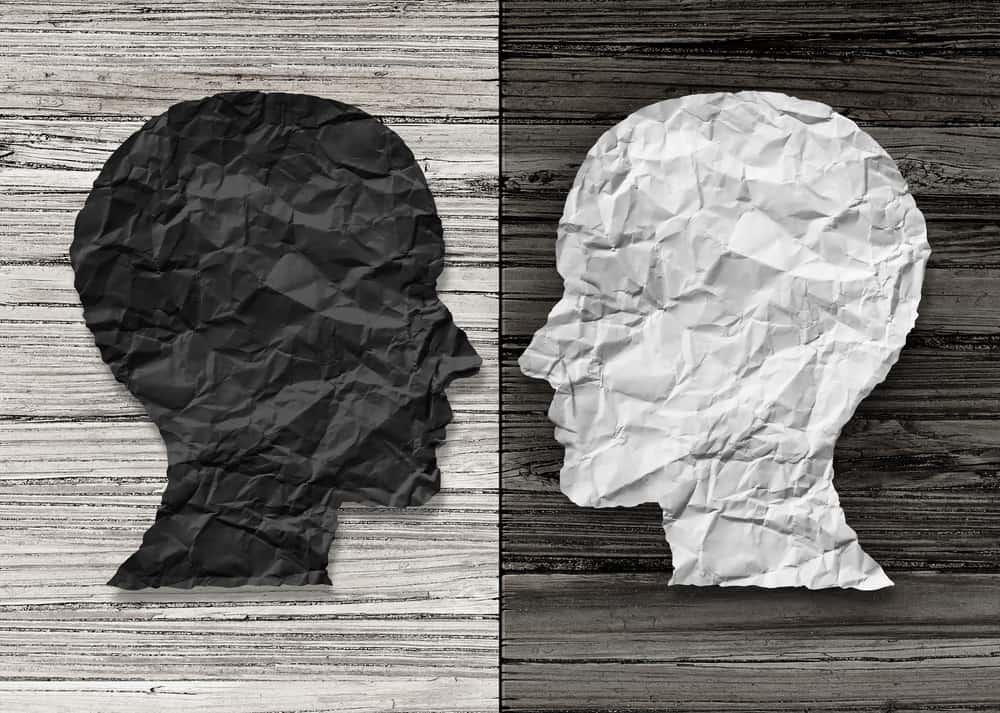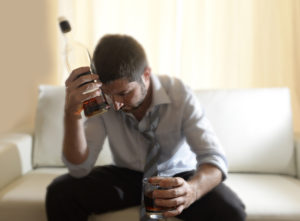Bipolar disorder is a common mental illness characterized by drastic mood swings, including manic highs to depressive lows. Also referred to as manic depression, the psychological condition affects roughly 3% of adults in the United States1.
If left untreated, the symptoms of bipolar disorder can be immensely challenging to work through — for both the bipolar individual and their loved ones. Many turn to alcohol or drugs in an attempt to self-medicate. Though substance abuse may temporarily numb the effects of manic depression, it can actually make the condition worse and could result in addiction.
It’s not uncommon for bipolar disorder to lead to addiction. But can drug abuse cause bipolar disorder? For over 30 years, Northbound Treatment has been providing individuals with the support and guidance they need to answer these questions and overcome substance abuse disorder (SUD) at our rehabilitation center. Many of our clients have a dual diagnosis, meaning they have a co-occurring psychological disorder. To learn about the connection between bipolar and alcohol abuse, common bipolar alcoholic traits, and more, head over to our blog.
The link between SUD and mental illness is never overlooked with our rehab programs in Orange County. We’ve successfully treated many patients struggling with bipolar disorder and drug abuse, and we’re here to answer your questions about these co-occurring conditions.
Bipolar Disorder and Drug Abuse: What Comes First?
Many people wonder, Can drug abuse cause bipolar disorder? Like many mood disorders, the direct cause of manic depression is currently unknown2. So, to answer this question, we have to examine the factors that can contribute to the condition or put someone at a higher risk for developing it.
Risk factors for bipolar disorder include:
- Having a close relative — such as a sibling, parent, aunt, or uncle — with bipolar disorder
- Structural brain abnormalities
- Impaired function of the nervous system
- Trauma
- Prolonged periods of stress or anxiety
- Abusing drugs or alcohol
These risk factors can be broken down into three categories: genetic (having a close relative with bipolar disorder), biologic (structural brain abnormalities and impaired function of the nervous system), and environmental (trauma, stress, anxiety, and substance abuse).
According to research published in the peer-reviewed journal Dialogues in Clinical Neuroscience, people with bipolar disorder often have structural abnormalities in the prefrontal cortex of their brains. These abnormalities have also been observed in patients without a bipolar diagnosis but who have a family history of the condition. Similarly, impaired function of the brain and the rest of the nervous system has been observed in both individuals with bipolar disorder and their close relatives3.
With these biologic and genetic risk factors as a baseline, the presence of any environmental risk factors may contribute to manic depression. In other words, if someone has a family history of bipolar disorder (but doesn’t struggle with mental illness themselves) and begins abusing drugs, the condition could develop.
Of course, this would still be dependent on a number of factors, such as the severity of a person’s substance abuse problem, how long they’ve been using drugs, the type of drug, and whether they’re chemically dependent. If you or a loved one are struggling with drug abuse and think co-occurring bipolar disorder is already present or may develop, prompt treatment is crucial. Contact Northbound Treatment to learn about our dual diagnosis rehab program in Orange County.
Understanding Bipolar Disorder
Most people have heard of manic depression and may even know someone who struggles with the condition. However, there’s still a substantial lack of understanding about bipolar disorder and how it affects a person’s mental, physical, and emotional well-being.
As we mentioned, individuals with bipolar disorder experience manic highs (also known as mania) and depressive lows (also known as depression). Periods of mania and depression can last for days, weeks, and even months.
During a manic high, many experience positive emotions, like excitement, euphoria, and inspiration. Mania can also involve an increase in physical energy, racing thoughts, irritability, and impulsiveness. For this reason, a manic episode can result in risky behaviors, such as abusing drugs, binge drinking, having unprotected sex, or going on a spending spree.
While in a depressive episode, someone with bipolar disorder might feel hopeless, apathetic, deeply sad, unmotivated, or disinterested in activities they used to enjoy. With a drastic drop in energy, they might sleep more than usual (or at irregular hours) or not leave their home for days or weeks at a time. During a depressive low, an individual may also experience suicidal thoughts.
On its own, bipolar disorder can negatively impact several aspects of a person’s life. Without treatment, many experience relationship issues, financial troubles, and difficulty meeting various obligations. And when coupled with drug abuse, the repercussions of manic depression can be even worse.
Treatment for Bipolar Disorder and Drug Abuse
If you or someone dear to you is battling drug addiction and bipolar disorder, you’re not alone. An estimated 70% of people with manic depression have also faced addiction at some point in their lives. Though common, co-occurring bipolar disorder and drug abuse are very serious and potentially dangerous.
Seeking treatment for both conditions is critical. However, it’s important for co-occurring disorders to be not only addressed but also treated simultaneously. Otherwise, the path to recovery can be hindered by the symptoms and behaviors of the other condition. Not only that, but going to rehab without getting treatment for bipolar disorder can increase a person’s risk of relapse. And being treated for manic depression without addressing drug abuse can result in severe dependence and addiction. For these reasons, the most effective treatment for co-occurring disorders is an integrated dual diagnosis rehab program.
Dual Diagnosis Treatment
In a dual diagnosis treatment program, patients work with a designated care team of physicians, nurses, addiction coaches, and therapists. Through counseling and therapy, they’re able to pinpoint the root cause of their substance abuse problem, which in many cases, is at least partially related to mental illness or trauma. Patients also identify various triggers and learn new ways to cope.
Drug abuse and mental illness both impact how a person’s brain processes and reacts to information and experiences. While it’s not always obvious which co-occurring condition arose first, integrated rehabilitation is essential for overcoming a dual diagnosis. Ultimately, dual diagnosis treatment programs are designed to help individuals not only get sober but also achieve long-term recovery by acknowledging all factors contributing to their drug use.
Northbound’s Approach to Treating Drug Addiction and Bipolar Disorder
The dedicated staff at Northbound Treatment recognizes the immense impact SUD has on an individual’s life and those closest to them. Whether they realize it initially or not, many of our clients also struggle with a mental health condition.
After an initial assessment of their mental health condition, each patient will work with their compassionate care team to develop a rehabilitation plan that suits their unique needs, preferences, and goals. A client’s plan can be adjusted at any point during treatment if something isn’t working — flexibility and adaptability are part of what makes our programs so successful.
Aside from integrated dual diagnosis treatment, we implement a range of evidence-based therapies into our rehab programs. This includes cognitive-behavioral therapy (CBT), group counseling, motivational interviewing, eye movement desensitization and reprocessing (EMDR), dialectical behavioral therapy (DBT), wilderness therapy, animal therapy, art therapy, and other experiential therapies.
Northbound Treatment offers a full continuum of care at our facilities in Southern California. From detox and residential rehab to outpatient treatment and ongoing addiction support, we do it all.
Are you or a loved one suffering from co-occurring disorders? We encourage you to reach out as soon as possible. Northbound is admitting new clients every day, and we’d love to tell you more about our programs. Call us at (888) 978-8649 to get started.
External sources:
- https://www.nami.org/mhstats#:~:text=Annual%20prevalence%20among%20U.S.%20adults,%25%20(estimated%207%20million%20people)
- https://www.mayoclinic.org/diseases-conditions/bipolar-disorder/symptoms-causes/syc-20355955#:~:text=Risk%20factors,Drug%20or%20alcohol%20abuse
- https://www.ncbi.nlm.nih.gov/pmc/articles/PMC3181872/#:~:text=In%20bipolar%20disorder%2C%20structural%20brain,family%20history%20of%20affective%20disorder.











